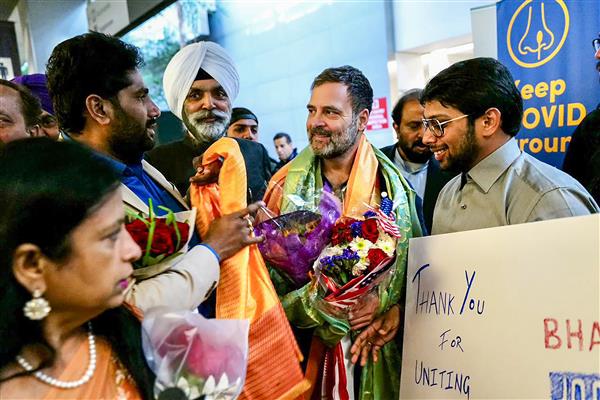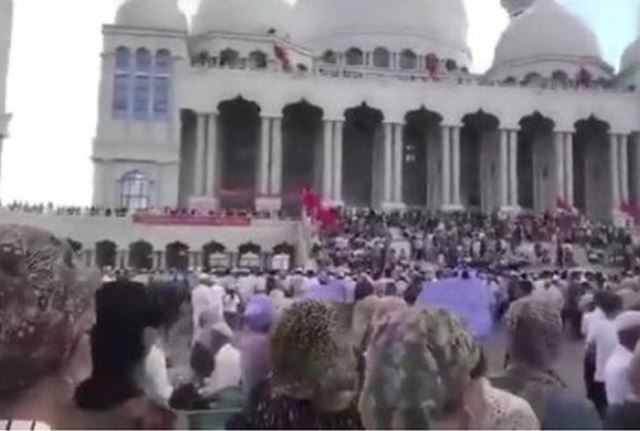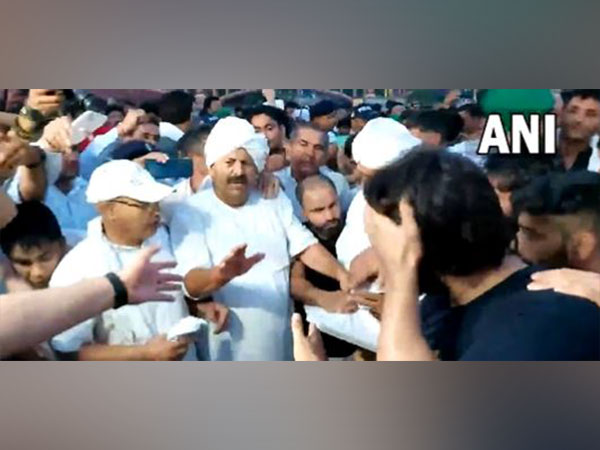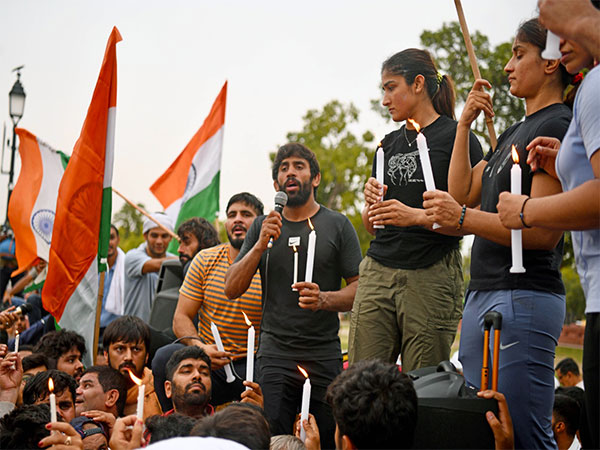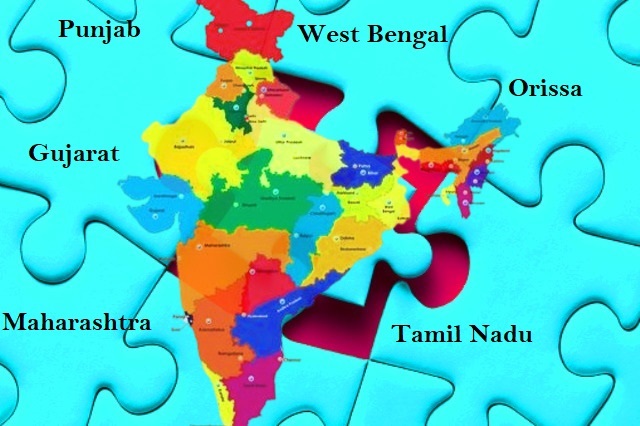With BJP’s almost invincible hold on the electorate and power in India, opposition politicians and political pundits are raking their minds on how to create an effective opposition in India’s democracy. Two alternatives have done the rounds. A revived Congress party or the Third Front. But neither appears to have life or sustainability. Perhaps it is time to look at a radical alternative.
The BJP’s appeal to the country is not its economic success or its welfare programmes lifting people out of poverty or its projected power in the world. Its main appeal is that it has given the common person in India an ‘identity’. It is not surprising that it continues to target Muslims, in order to consolidate Hindu identity, its main electoral base.
While economics, jobs and development are essential part of any delivery for electoral success, one of the vacuums at the heart of independent India since 1947 has been the question: What or who is an Indian? Is it an identity that has evolved over centuries or is it an identity created by the British on a map with half Punjabis, mostly Muslims, in Pakistan and half in India; Half Bengalis, mostly Muslims, in Bangladesh and half in India in Bengal. Most of Sindhis in Pakistan but some in India. And a significant number of Kashmiris in India and many in Pakistan. These geographic communities have been fragmented by an arbitrary line. Some became Indian and some Pakistanis.
What went to India was at least 25 or more ethnic dominant regions or Kingdoms that had a long history of their own, their language, their culture, their cuisine, their religious preference etc. Different regions had different favourite gods and belief systems that dominated their historical development. They had different folk heroes, folk dances and even customs.
There was no ‘natural’ India in 1947 except in the minds of the post-colonial elite. The first thing Nehru’s Congress did was to try and forge an identity to keep the ‘nation’ together. He tried the idea of European secularism and gave the Indian an identity of secular nationalism as opposed to the religious nationalism of Pakistan. Pakistan was built on the idea of a Muslim nation. India was to be on the idea of a country for all within its territory. There was some reconstruction of Indian history to justify ‘secularism’.
The experiment didn’t work. In 1984, in her desperation to win vote, Indira Gandhi targeted the Sikhs as the ‘other’ and went about on a killing spree, invoking latent Hinduism’s desire for identity and unity. It backfired on her and her party.
I said in a BBC interview in 1984, that metaphorically the State has taken on the Church and it is not so called Sikh fundamentalism that the Indian state has to worry but the next phase in this will be rise of Hindu fundamentalism. Hindu nationalism has tasted blood and was bound to grow bigger. The BJP was the natural inheritor that fed this appetite. It was clever enough not to target Sikhs but Muslims instead.
So there is the country, still desperately needing an identity, focusing on trying to find one, refusing to face a simple reality, that there is no natural Indian but an accident of post-colonial history. It is a passport identity. Most people in the State are still Gujaratis, Bengalis, Punjabis, Marathis, Tamils etc. They don’t identify first as Indian. The result is that a great deal of politics, rhetoric and energy goes to sustain the post-colonial identity, at the expense of much wanted attention to reduce poverty, create jobs and harmony among its people.
ALSO READ: India’s Fall From Democracy To Electoral Autocracy
Ironically, India has become like Pakistan, a country identified by a ‘religion’, rather than a secular entity. It appears that the founders of Pakistan were right in the idea of two nations.
Time is not going to go back. Congress’s ideology of the secular Indian is now a lost cause. Even its leader, Rahul Gandhi, is role playing as some sort of a Hindu Sadhu, knowing that the majority Indians want a ‘Hindu’ leader and not a secular leader. But politically the Congress has not come with an alternative version of a plural Hinduism. It is still tied to secularism. Moreover it is a family feudal outfit.
The other alternative, as anti-BJP coalition, is one that has no positive ideological message except anti-Modi or anti-Hindutva. That is not an ideology. It is negative politics.
The Third Front is what it is, a patched up coalition of wannabe leaders who cannot otherwise hope to become leaders of India. As coalitions without an ideological base, they will fall into internecine struggles as they did before.
The coalition does not offer Indians an identity since most of the partners run states along regional identities. The Bengali regional party of Mamata won the state on Bengali nationalism and not Indian national identity. The Punjab political parties win on Punjabi identity and not a pan Indian identity or even a secular agenda for the state. Hence the Nitish Kumar campaign to create a third front is a non-starter.
Even in development and economy, each of the regional parties champion their own state. What will be decided on the national level? Hence Modi with his large national party machine that offers a significant electorate a pan Indian identity of ‘Hindu Rashtra’ and a united structure, remains the uncontested leader standing.
There is another alternative. It is to face history, the nature of societies in the post-colonial State called India and then develop a pan Indian political movement based on that. There is a need for a new political alternative that builds on strong federalism, on strong regional identities and accept that the natural identity of most people in India is the region they belong to. They can be Indian as a collective identifier but still be Gujarati, or Bengali etc as a nationality.
The alternative needs to be coalition of regional parties that set its agenda to strongly federalise India, reduce the powers and remits of the Centre and give the regions back their national identities. Some of it happened with the Manmohan Singh reforms on liberalising economic development when he gave the regions much greater say and freedom to develop their own economies.
Now it needs a second step to give the regions freedom to strengthen their own cultural identities their own political systems and their own economic prerogatives.
This model has worked in Europe. Europe now works as a superstate but as a coalition of nations. Most European nations have their own political systems but they agreed on some common principles of human rights and ‘democracy’ that remain their glue. They have freedom of movement, of economic activity, foreign policy and defence.
Of course, India does not have to go all the way as Europe. After all European Union was formed from existing distinct countries coming together. India on the other hand is a State already inherited from a colonial era as a common administrative unit.
Such a coalition will strengthen India. It will encourage fierce inter-state competition for development. The regional states will want to ensure peace within their boundaries by adopting inclusivity instead of divisiveness. Gujaratis can remain Gujaratis as Hindu and Muslim Gujaratis, proud of their state while Bengalis can remain Bengalis as Hindu and Muslims and other denominational Bengalis. Neither will be prey to a national party trying to forge a ‘national identity’ bigger than them.
A party committed to something like this will have a structure of leadership instead of a patchwork sewn together when a wannabe leader does not get a place in a ministerial post in BJP. It will even be better if the party was to declare itself as a federal party that will not compete in the regions for regional power.
Currently, both the Congress and the BJP try to win in the states and then win the states on a national level. A party that restricts itself to fighting only on a national level will appeal to the regions more as they won’t see it as a threat to their own bases of power.
If such a party does emerge, it could unleash a tremendous amount of energy and developmental potential. It will be a model that many other post-colonial countries can adopt. Most problems in post-colonial countries are similar to the problems that India inherited. They have tribes and nations forced into a territory that is seeking an identity of its own, stamping on the long evolved identities and languages of the regions. It is a common issue across commonwealth and even French post-colonial countries.
One just has to look at the neighbour Pakistan. Despite ‘Islam’ being the national identity, regional identities continue to struggle, whether they be Sindh, Baloch, Pathan etc.
As for the fear of the Indian Babu that such an experiment will lead to fragmentation, there is no justification in it. It is a fear inherited from the British administrative system. It is a psychosis that the Indian Administrative Service, seems to have failed to challenge in their training manuals. There is a common interest in the states working together for common defence, economic policy, foreign policy and common interests. The days of small States has gone.
A real alternative to the two monoliths, BJP and the defunct Congress, is a new bold, radical and imaginative political party that builds on what worked for South Asia for thousands of years. A party and State of nations rather than a hybrid nation, still struggling to find an identity.
Read More: lokmarg.com
